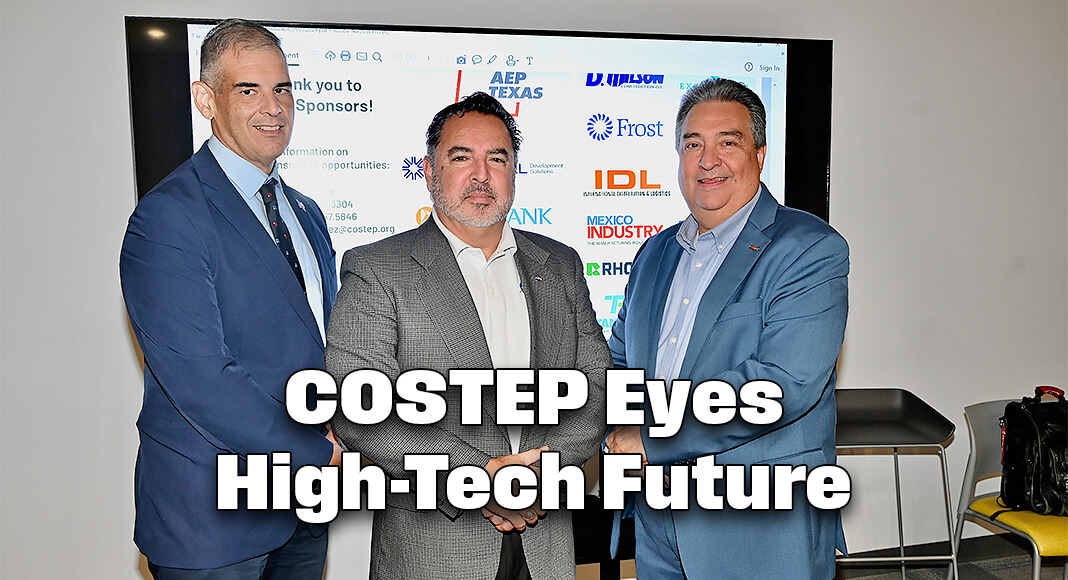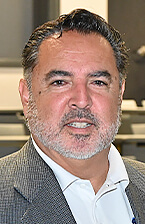
Texas Border Business
By Roberto Hugo González
On August 9, 2024, leaders across Rio South Texas, gathered for a vital conference to foster regional collaboration to drive economic development in the aerospace and semiconductor industries. Hosted by COSTEP, Council for South Texas Economic Progress, and its CEO Adam Gonzalez, the event brought together key stakeholders from a seven-county region—Cameron, Hidalgo, Jim Hogg, Starr, Webb, Willacy, and Zapata counties—to discuss strategies for uniting the region in attracting high-tech industries.
The conference’s central theme was the pressing need for Rio South Texas to present a united front in attracting and developing new industries, particularly in the rapidly growing aerospace and semiconductor manufacturing fields. Adam Gonzalez emphasized the importance of dismantling existing silos between educational institutions, workforce boards, economic development corporations, cities, and municipalities. He argued that Rio South Texas can only build the talent pipelines necessary to support these high-paying, high-tech industries through a cohesive regional strategy.
Walt Ugalde’s presentation on the NASA Technology Transfer Expansion Program (T2X) was a conference highlight. It stressed the extensive resources NASA can offer the region. Ugalde outlined how NASA’s grants, entrepreneurial programs, and educational initiatives could be leveraged to develop the aerospace sector in Rio South Texas. Importantly, Ugalde made it clear that his involvement was not a one-time engagement; he strongly committed to being a long-term resource for the region. On the other hand, Gonzalez hinted at finding ways to build a stronger relationship with NASA and establishing a more permanent presence in Rio, South Texas.
One of the significant challenges identified during the conference was the current gap in talent pipelines needed by industries like aerospace and semiconductor manufacturing. Despite the region’s potential, there is a noticeable shortage of mature talent pools, which these industries require. This gap highlights the necessity of coordinated efforts in education and workforce development, focusing on creating a skilled labor force that can meet the demands of high-tech industries.
Gonzalez also emphasized the critical role of private industry in regional development projects. The funding needed to establish and sustain new industries in Rio South Texas is expected to come from various sources, including government agencies, state funds, and private investment. Engaging the private industry is essential to securing the capital and expertise necessary for these initiatives.
As part of COSTEP’s ongoing efforts to drive regional economic development, Gonzalez announced plans for another event on November 5th, focusing on the semiconductor industry. This upcoming event will feature a speaker from the Binational Initiative for Science in Mexico, discussing the region’s assets and the steps needed to attract semiconductor manufacturing jobs. Gonzalez emphasized that COSTEP plans to hold these conferences quarterly, with each event focusing on topics critical to the region’s economic growth.
The conference provided several key takeaways:
- Unified Regional Strategy: The success of attracting and developing high-tech industries in Rio South Texas hinges on a unified regional approach.
- Leveraging NASA’s STMD Portfolio: NASA’s Early-Stage Innovation & Partnerships Portfolio offers a unique opportunity for Rio South Texas to leverage federal resources for local economic development, potentially leading to establishing a regional spaceport and related industries.
- Educational and Workforce Development: Addressing the talent gap through coordinated education and workforce initiatives is essential to support the region’s high-tech ambitions. NASA’s T2X, its SBIR/STTR, and the OSTEM Programs collectively offer a great portfolio for the region to leverage.
- Private Industry Involvement: Collaboration with private industry is crucial for securing the funding and expertise needed to build and sustain new industries.
The conference accentuated the importance of regional collaboration in driving economic progress in Rio South Texas. With the region’s continued engagement with NASA programs and the potential for further investment from private industry and government sources, Rio South Texas is well-positioned to become a hub for aerospace and semiconductor manufacturing. However, as Gonzalez said, “The path to success requires continued efforts to break down silos, build talent pipelines, and work together as a unified region.” The upcoming November 5th event will be a crucial next step in this ongoing effort to transform Rio South Texas into a high-tech economic powerhouse.














